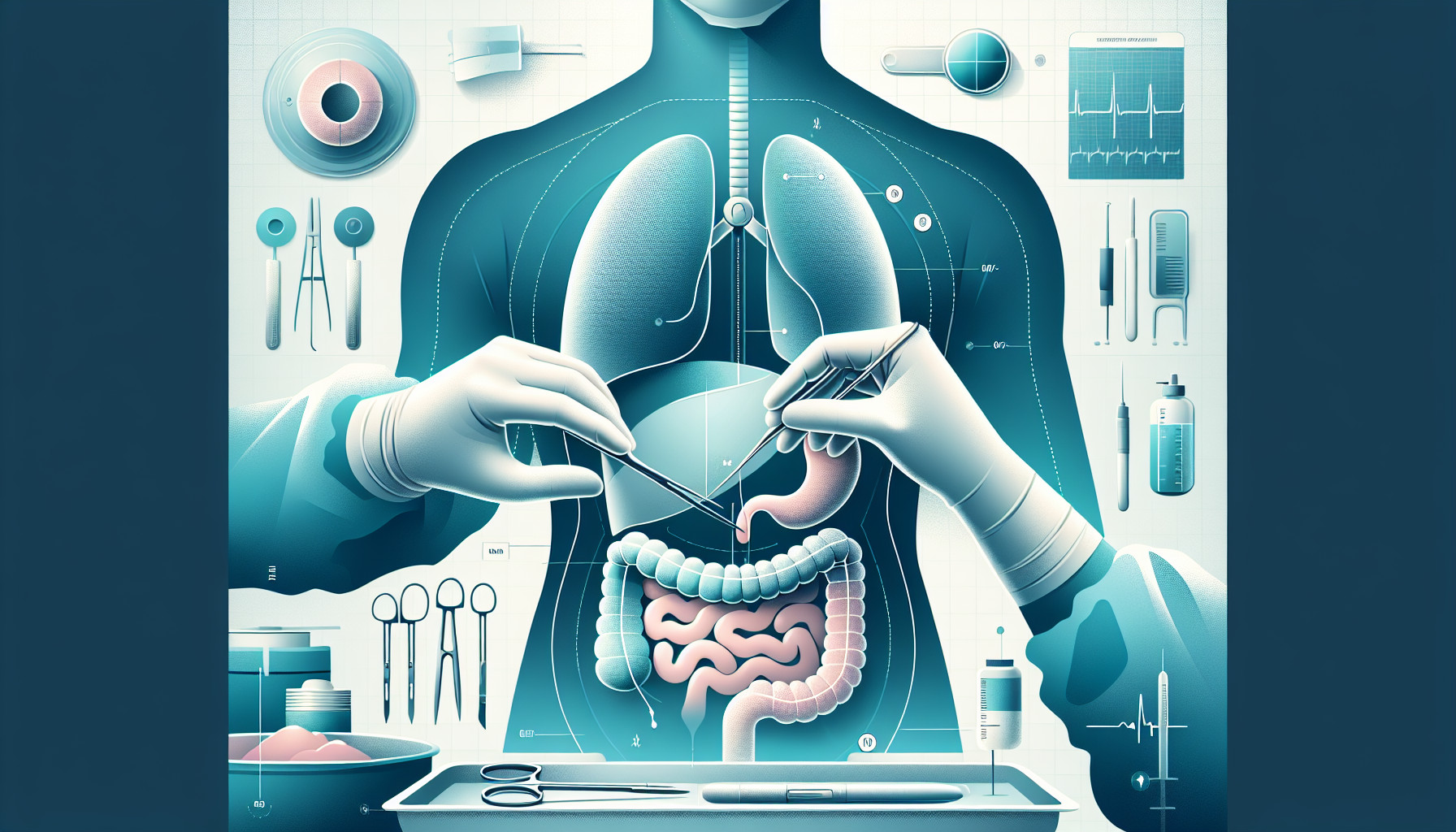Our Summary
This study looked at whether surgery to repair hiatal hernias (a condition where part of the stomach pushes up through the diaphragm muscle) can improve lung function. Past research has shown that this type of hernia can be treated with surgery, but it was unclear if the procedure had any benefits for lung function.
The researchers gathered and analyzed data from several previous studies that had looked at this issue. The quality of these studies was evaluated, and the results were statistically analyzed.
The analysis included data from 262 patients. The results showed that surgery to repair a hiatal hernia significantly improved three measures of lung function: forced expiratory volume in 1 second (the amount of air a person can forcefully exhale in one second), forced vital capacity (the total amount of air a person can forcefully exhale after taking the deepest breath possible), and total lung capacity (the maximum amount of air the lungs can hold).
However, the surgery did not have a significant effect on residual volume (the amount of air left in the lungs after a person has exhaled as much as they can) and the ability of the lungs to transfer oxygen to the blood.
In simpler terms, for those with hiatal hernias, having surgery to fix the hernia can help improve their ability to breathe out forcefully and the total amount of air their lungs can hold.
FAQs
- Does surgery to repair a hiatal hernia help improve lung function?
- What specific measures of lung function are improved after hiatal hernia repair surgery?
- Does hiatal hernia repair surgery improve the ability of the lungs to transfer oxygen to the blood?
Doctor’s Tip
A doctor might tell a patient that surgery to repair a hiatal hernia can improve lung function by increasing the amount of air they can exhale forcefully and the total amount of air their lungs can hold. This can help improve breathing and overall respiratory function. It is important to discuss the potential benefits and risks of surgery with your doctor to determine if it is the right treatment option for you.
Suitable For
Patients who are typically recommended for hiatal hernia repair are those who are experiencing symptoms such as heartburn, acid reflux, chest pain, difficulty swallowing, and regurgitation. In addition, patients who have complications related to their hiatal hernia such as Barrett’s esophagus or recurrent pneumonia may also be recommended for surgery. Patients who do not respond well to medications or lifestyle changes to manage their symptoms may also be candidates for hiatal hernia repair. Ultimately, the decision to undergo surgery should be made in consultation with a healthcare provider after a thorough evaluation of the individual’s specific condition and symptoms.
Timeline
Before the hiatal hernia repair surgery, a patient may experience symptoms such as heartburn, chest pain, difficulty swallowing, regurgitation of food, and nausea. They may undergo diagnostic tests such as an endoscopy or barium swallow to confirm the presence of a hiatal hernia.
After the surgery, patients can expect a recovery period of several weeks. They may experience some discomfort, bloating, and difficulty swallowing in the immediate post-operative period. They will need to follow a specific diet and avoid heavy lifting and strenuous activities for a period of time.
Over the following weeks and months, patients should gradually see an improvement in their symptoms as the hernia is repaired and the stomach is returned to its normal position. They may need to attend follow-up appointments with their surgeon to monitor their progress and ensure that the hernia has not recurred.
Overall, patients can expect a reduction in symptoms such as heartburn and chest pain, improved ability to swallow, and better overall lung function following hiatal hernia repair surgery.
What to Ask Your Doctor
Some questions a patient should ask their doctor about hiatal hernia repair include:
- Is surgery necessary to repair my hiatal hernia, or are there alternative treatments available?
- What are the potential risks and complications associated with hiatal hernia repair surgery?
- How successful is hiatal hernia repair surgery in improving symptoms and quality of life?
- What is the recovery process like after hiatal hernia repair surgery, and how long will it take to fully recover?
- Will I need to make any lifestyle changes or follow a specific diet after hiatal hernia repair surgery?
- Are there any long-term side effects or considerations to be aware of after undergoing hiatal hernia repair surgery?
- How often will I need follow-up appointments or tests after hiatal hernia repair surgery?
- Are there any factors that may impact the success of hiatal hernia repair surgery in my case, such as my age or overall health?
- Can you provide me with information about the surgeon who will be performing the hiatal hernia repair surgery and their experience with this procedure?
- Are there any specific questions or concerns I should discuss with my primary care physician or other healthcare providers before undergoing hiatal hernia repair surgery?
Reference
Authors: Wang Y, Lv Y, Liu Y, Xie C. Journal: Hernia. 2023 Aug;27(4):839-848. doi: 10.1007/s10029-023-02756-5. Epub 2023 Feb 24. PMID: 36826630
